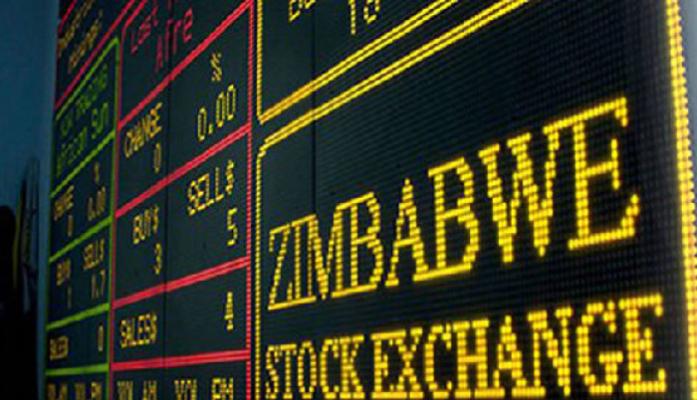News / National
'ZSE left with two valuable counters'
20 Nov 2024 at 07:03hrs |
0 Views

The Zimbabwe Stock Exchange (ZSE) is witnessing a significant shift, with Delta Corporation Limited and Econet Wireless Zimbabwe now standing as the only major valuable counters on the bourse. Several companies have been delisting from ZSE in favor of listing on the Victoria Falls Stock Exchange (VFEX), a foreign currency-only market, as the local currency's volatility continues to affect market operations.
Stockbrokers have attributed the delisting trend to the instability of the Zimbabwean Dollar (ZWL$), which has prompted companies to seek refuge in VFEX, where transactions are conducted exclusively in US dollars. Last month, private equity investor BridgeFort Capital Limited and tea producer Tanganda Tea Company Limited announced plans to delist from the ZSE to list on VFEX, further exacerbating the liquidity challenges on the local exchange.
Arnold Chibvongodze, the Secretary General of the Stockbrokers Association of Zimbabwe, explained that the dual currency system of the ZSE, which now trades in both ZWL$ and the US dollar, is creating liquidity issues. "Before the ZWL$, trading was in one currency, and all the counters were on the ZSE. But with the currency volatility, some counters have moved from ZSE to VFEX," he said.
Notably, the Innscor Group, a significant player on the ZSE, has also made the shift to VFEX. Chibvongodze pointed out that this move, while involving no new share issuance, has led to a reduction in liquidity on the ZSE in local currency, as shares now trade primarily in US dollars.
The ZSE is now dominated by just two large companies - Delta and Econet Wireless - which have market capitalisations of US$987.87 million and US$373.88 million, respectively. This concentration of value in just two companies is making it increasingly difficult for brokers to maintain effective operations. "If you don't trade those two counters, if you're a broker, then definitely you won't make it," Chibvongodze noted.
Meanwhile, VFEX has gained traction as an attractive alternative, with companies such as Innscor, Simbisa, and WestProp continuing to trade in US dollars. Brokers on the VFEX are benefiting from transactions in foreign currency, which they deem more reliable. "On VFEX, you get real money," said Chibvongodze.
Despite the market capitalisation of the ZSE increasing to US$3.27 billion as of last week, up from US$2.75 billion in December 2023, the bourse has faced a weakening of its valuation in recent months, according to financial services firms and stockbrokers.
For brokers operating on the ZSE, the need to convert local currency into US dollars to meet obligations presents a significant challenge. Chibvongodze highlighted the importance of stabilizing liquidity and urged the government to consider adopting a single currency to address the issue.
"Maybe adopting the rand would be the best because it would make trading across the region easier. For Zimbabwean companies exporting to South Africa, it would simplify transactions," he said.
As the economic situation in Zimbabwe continues to evolve, the growing preference for VFEX and the challenges facing the ZSE raise important questions about the future of the local stock market and the broader financial landscape.
Stockbrokers have attributed the delisting trend to the instability of the Zimbabwean Dollar (ZWL$), which has prompted companies to seek refuge in VFEX, where transactions are conducted exclusively in US dollars. Last month, private equity investor BridgeFort Capital Limited and tea producer Tanganda Tea Company Limited announced plans to delist from the ZSE to list on VFEX, further exacerbating the liquidity challenges on the local exchange.
Arnold Chibvongodze, the Secretary General of the Stockbrokers Association of Zimbabwe, explained that the dual currency system of the ZSE, which now trades in both ZWL$ and the US dollar, is creating liquidity issues. "Before the ZWL$, trading was in one currency, and all the counters were on the ZSE. But with the currency volatility, some counters have moved from ZSE to VFEX," he said.
Notably, the Innscor Group, a significant player on the ZSE, has also made the shift to VFEX. Chibvongodze pointed out that this move, while involving no new share issuance, has led to a reduction in liquidity on the ZSE in local currency, as shares now trade primarily in US dollars.
The ZSE is now dominated by just two large companies - Delta and Econet Wireless - which have market capitalisations of US$987.87 million and US$373.88 million, respectively. This concentration of value in just two companies is making it increasingly difficult for brokers to maintain effective operations. "If you don't trade those two counters, if you're a broker, then definitely you won't make it," Chibvongodze noted.
Meanwhile, VFEX has gained traction as an attractive alternative, with companies such as Innscor, Simbisa, and WestProp continuing to trade in US dollars. Brokers on the VFEX are benefiting from transactions in foreign currency, which they deem more reliable. "On VFEX, you get real money," said Chibvongodze.
Despite the market capitalisation of the ZSE increasing to US$3.27 billion as of last week, up from US$2.75 billion in December 2023, the bourse has faced a weakening of its valuation in recent months, according to financial services firms and stockbrokers.
For brokers operating on the ZSE, the need to convert local currency into US dollars to meet obligations presents a significant challenge. Chibvongodze highlighted the importance of stabilizing liquidity and urged the government to consider adopting a single currency to address the issue.
"Maybe adopting the rand would be the best because it would make trading across the region easier. For Zimbabwean companies exporting to South Africa, it would simplify transactions," he said.
As the economic situation in Zimbabwe continues to evolve, the growing preference for VFEX and the challenges facing the ZSE raise important questions about the future of the local stock market and the broader financial landscape.
Source - newsday
Join the discussion
Loading comments…









































